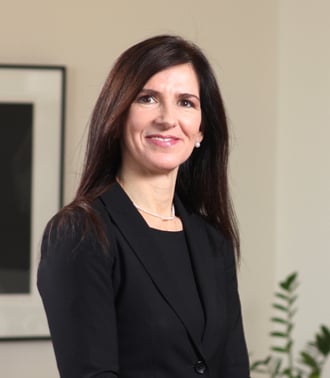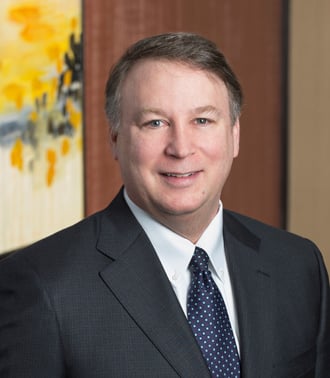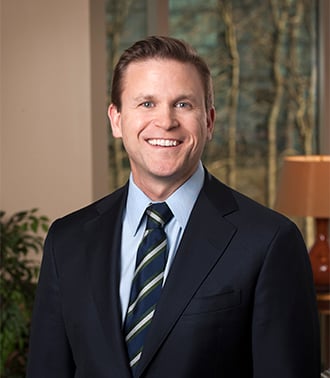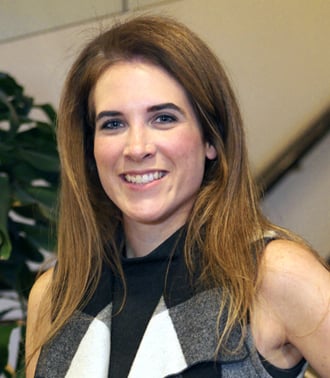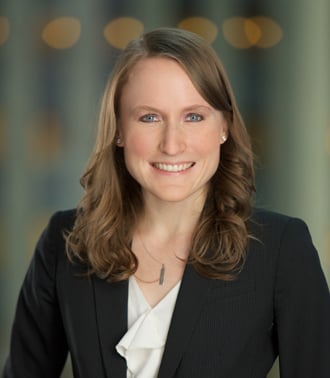Senate Banking Committee Questions Gary Gensler on His Nomination to Be Chair of the Securities and Exchange Commission
On March 2, 2021, the Senate Committee on Banking, Housing, and Urban Affairs held a three-hour virtual nomination hearing for Gary Gensler, President Biden's nominee for Chair of the US Securities and Exchange Commission (SEC).1 Gensler has a reputation for being an aggressive regulator with a research-oriented approach, and his nomination has received praise from progressives. Gensler's nomination has been relatively uncontroversial to date, and it is anticipated that he will be confirmed. At that point, Gensler will succeed former SEC Chair Jay Clayton—who led the agency in favor of a deregulatory policy during the Trump Administration—and take over for current Acting Chair Allison Herren Lee.
Gensler's Background
Gensler has extensive experience in the private sector, government and academia, and he is considered to be a leading finance expert and a proponent of reform and transparency in the financial markets. Gensler earned a BA in economics in 1978 and an MBA in 1979, both from the Wharton School of the University of Pennsylvania. He began his career at Goldman Sachs and spent 18 years there. At various points during his time at Goldman, Gensler was a partner in the firm's mergers and acquisition department, headed its media group, led fixed income and currency trading in Asia, and ultimately became co-head of finance. In the late 1990s, Gensler moved into public service and served in the US Trade Department as Assistant Secretary for Financial Institutions from 1997 to 1999 and as Undersecretary for Domestic Finance from 1999 to 2001. Gensler also served as senior advisor to Sen. Paul Sarbanes, then-chair of the Senate Banking Committee, during the development of the Sarbanes-Oxley Act, passed in 2002. Gensler, along with Gregory Baer, co-authored a book in 2002 titled "The Great Mutual Fund Trap" in which the authors concluded that actively managed mutual funds with higher fees generally perform worse than "passive" low-fee index funds.
Gensler is perhaps best known for his role as Chair of the Commodity Futures Trading Commission (CFTC) from 2009 to 2014 during the Obama Administration. As head of the CFTC, Gensler recommended greater oversight of the financial derivatives market and helped implement the Dodd-Frank Wall Street Reform and Consumer Protection Act passed by Congress in 2010, which overhauled derivatives trading. During his tenure, the CFTC also brought charges against five financial institutions that it claimed had been manipulating the London Inter-Bank Offered Rate (LIBOR), resulting in over $1.7 billion in penalties.
In 2018, Gensler became a faculty member at the MIT Sloan School of Management, where he has been a professor of global economics and management, co-director of MIT's Fintech@CSAIL program and a senior advisor to the MIT Media Lab Digital Currency Initiative. He has taught classes on blockchain, digital currencies and other financial technologies. Gensler won the MIT Sloan Outstanding Teacher Award for the 2018-19 academic year.
Gensler's nomination has received support from the Consumer Federation of America and the North American Securities Administrators Association.
Recent Market Volatility
Banking Committee Chairman Sen. Sherrod Brown (D-OH) opened the hearing with a reference to one of the most highly-anticipated topics of the hearing, the recent buying restrictions put in place by the trading app Robinhood Markets, Inc. and other online brokerages during the market volatility of recent weeks involving GameStop Corp. and certain other "meme" stocks. Chairman Brown stated that Gensler's confirmation was being considered "at a time when it's become more and more obvious to most people that the stock market is detached from the reality of their lives." Gensler responded that recent events have caused him to consider the areas in which the SEC could step in to ensure that customers are receiving the best execution on trades that brokers sell to market makers and that they will have access to markets when certain "apps may at times fall short of needed margin funds." Gensler added: "In some ways [this is] a story as old as the markets themselves, a clash between buyers and sellers with opposing views, but in other ways this story is about this new technology . . . that's constantly changing finance."
In response to questions from Sen. Jack Reed (D-RI), Sen. Mark Warner (D-VA) and Sen. Cortez Mastro (D-NV), Gensler also discussed the business model of some online brokers, which offer commission-free transactions while selling clients' orders to high-frequency market makers, a practice called payment for order flow. Gensler briefly touched on the new challenges for the SEC in terms of how to protect retail investors when apps "gamify" the investing process: "I think technology has provided greater access but also raises interesting questions" like "what does it mean when balloons and confetti are dropping and you have behavioral prompts to get investors to do more transactions on what appears to be this free trading app, but then there's this payment behind the scenes, this payment for order flow?" He added: "I think we're going to need to study that and see what it means for our marketplace."
Enforcement Agenda
Though Gensler's enforcement agenda at the SEC is widely expected to be more aggressive than that of his predecessor, this topic received comparatively little focus by the Senate Banking Committee—and, when raised, it was generally done in a less partisan manner.2 For example, in response to questions from Sen. Steve Daines (R-MT) asking for clarification about when enforcement, as opposed to guidance or rulemaking, would be appropriate, Gensler said: "If there's a rulemaking, that's very different than enforcement. [Enforcement's] about using the facts of the law and limited resources to change market behavior." Gensler further observed: "If there's a bunch of small fraud shops, you got to go after them, but after the first four, five or six you go after, maybe the others start to clean up their behavior."
Climate Risk Disclosures
Much of the discussion during the hearing addressed corporate climate risk disclosures, which Democrats have sought to enhance under the Biden Administration.3 During the hearing, Chairman Brown said he expects Gensler to focus on "upgrading climate-risk disclosure requirements that are out of date, punishing misconduct, and enforcing protections on the books." Republicans, for their part, have generally argued against such climate risk disclosures, characterizing them as an attempt to inject politics into securities regulation. Sen. Pat Toomey (R-PA), the panel's senior Republican (Ranking Member), for example, stated: "The SEC has historically administered the federal securities laws on a bipartisan basis" and that, while at the CFTC, Gensler "had a history of pushing the legal bounds of the [CFTC's] authority" and "there are some who want the SEC to stray from its tradition of bipartisanship by using its regulatory powers to advance a liberal social and cultural agenda."
In response to questions about climate risk disclosures, Gensler did not make any specific commitments, but rather stated that any new disclosures would be based on the concept of materiality, meaning that, while a single piece of information may not be material by itself, it may nonetheless be significant in the context of the total mix of information made available to investors. Gensler elaborated: "The courts have helped define that it's the investor community that gets to decide what's material to them; it's not a government person like myself." He also stated: "It's all about that reasonable investor, and if they think it's significant in the mix of information, I'm going to be guided by that."
Nonetheless, Gensler recognized that "increasingly, investors really want to see climate risk disclosures" when weighing potential investment opportunities and the "SEC has a role to play to help bring some consistency and comparability to those guidelines." He added: "I think issuers would benefit from such guidance, so I think through good economic analysis, working with the staff, and putting it out to the public to get public feedback on this, this is something the Commission, if I'm confirmed, would work on." In response to questions from Sen. Cynthia Lummis (R-WY) about what effect disclosure rules would have on energy companies' ability to raise capital in particular, Gensler answered that climate risk disclosure rules could be "pro-issuer, pro-corporation and pro-investor" and provide companies with "some consistency, comparability, and some clear rules." While Gensler did not describe in detail the contours of what these disclosures would entail, when asked by Sen. Elizabeth Warren (D-MA) whether there is any reason why companies should be able to hide their climate risks from investors, Gensler replied simply, "No, they should not."
Diversity Disclosures
During the hearing, Ranking Member Toomey addressed a proposal released by Nasdaq in December 2020 that would require companies on its exchange to publicly disclose diversity information about their board of directors and push them to have at least "one [board member] who self-identifies as female and one who self-identifies as either an underrepresented minority or LGBTQ." This proposal has largely received support from Democrats, who have said that the SEC should require publicly listed companies' financial disclosures to include more information about diversity. Some Republicans have publicly opposed requiring such disclosures, saying that it interferes with board members' duty to govern companies in the best interests of the shareholders.
Ranking Member Toomey observed that it is not Nasdaq's place to "use its quasi-regulatory authority to impose social policies" and asked Gensler if he thought companies should be "forced or pressured to comply with some kind of quota with respect to race, gender and sexual orientation." In response, Gensler did not say whether he would support Nasdaq's proposal, but rather indicated his focus was on looking for ways for companies to disclose information on workforces more generally. He said that "human capital is a very important part of the value proposition in so many companies" and that diversity on boards and senior leadership "benefits decision making." He committed to "look at what information investors want" in disclosures in terms of demographic data about firms' employees. Referencing the former SEC Chair, Gensler elaborated: "Clayton took up some approaches to human capital, but I think it's always evolving, and we will look at what information investors want in this broad arena about the human capital, including diversity, at the companies they're investing in."
Corporate Political Spending Disclosures
Another disclosure topic discussed during the hearing involves political contributions by public companies. Although the federal securities laws impose no specific requirement to disclose political expenditures, investor advocates and others have urged for more transparency from companies when it comes to political spending, and Democrats have introduced legislation to require such disclosures. At the hearing, Sen. Bob Menendez (D-NJ) asked Gensler if corporate political spending is material information that should be disclosed to investors. Gensler replied that, if confirmed, he would be "grounded" in the "materiality standard that drives all those decisions on disclosure." Gensler also emphasized, however, that shareholders "want to see what the companies they own are doing in the political arena," and that this is something that he thinks the SEC "should consider in light of the strong investor interest."
Cryptocurrency and Digital Assets
Given Gensler's experience in the cross-section of cryptocurrency and regulation, he was asked about the SEC's role in this space. Gensler praised cryptocurrency technology at various points in the hearing and noted that it could provide cheaper cross-border or domestic transactions and that the underlying blockchain technology could be applied to medical records, trade finance, or other forms of data collection. He elaborated: "Bitcoin and other cryptocurrencies have brought new thinking to payments and financial inclusion, but they've also raised new issues of investor protection that we still need to attend to." Gensler also stated: "If confirmed at the SEC, I'd work with fellow commissioners to both promote the new innovation, but also at the core to ensure investor protection."
Conclusion and Next Steps
While the hearing touched on several hot-button topics, including the recent market volatility and climate risk and diversity disclosures, it was not particularly revealing about Gensler's priorities if confirmed as Chair of the SEC, which we expect to take place in the near-term. That said, it is widely-anticipated that Gensler is likely to take a more aggressive approach than that of his predecessor, as well as focus more on research and collaboration. Gensler echoed this sentiment during the hearing: "We'll have some differences from time to time . . . I just hope that when we differ, we disagree agreeably, but I'm going to look to see where we can work together."
In terms of next steps, Chairman Brown closed the hearing by saying that members would have until Friday to submit any additional written questions, which Gensler would have until the following Monday to answer. Be on the lookout for additional details about Gensler's confirmation, along with other enforcement developments during the Biden Administration, in future advisories from Arnold & Porter.
© Arnold & Porter Kaye Scholer LLP 2021 All Rights Reserved. This Advisory is intended to be a general summary of the law and does not constitute legal advice. You should consult with counsel to determine applicable legal requirements in a specific fact situation.
-
This hearing also included consideration of President Biden's nominee for Director of the Consumer Financial Protection Bureau (CFPB), Rohit Chopra.
-
This is not to say that Republican members of the Committee did not express concerns about "regulation by enforcement" at this hearing—but, when such concerns were raised, they were generally directed at CFPB nominee Chopra rather than at Gensler.
-
For more information about climate-related risk management, please see our previous Advisory, and be on the lookout for additional advisories we will be issuing on this topic.

